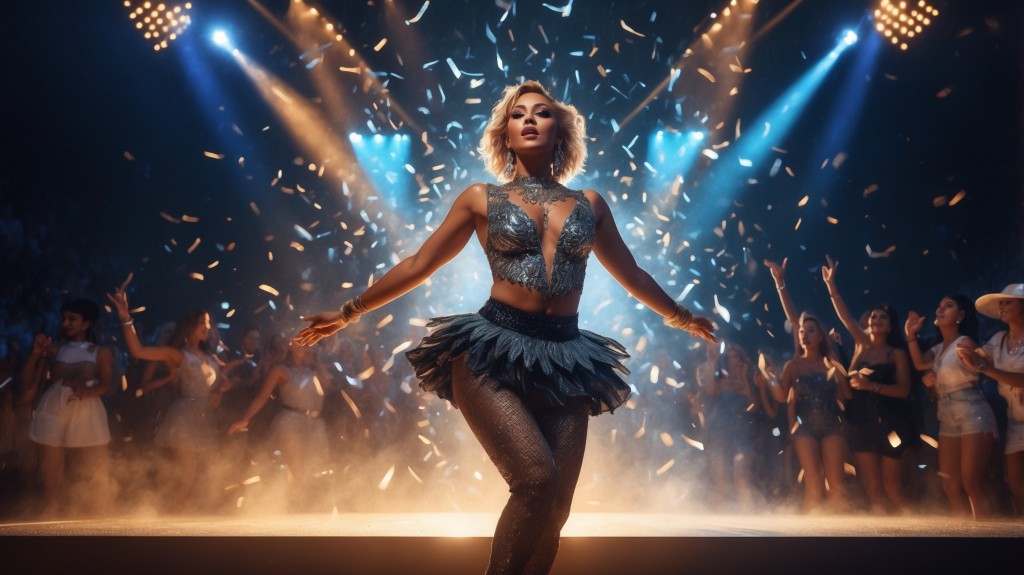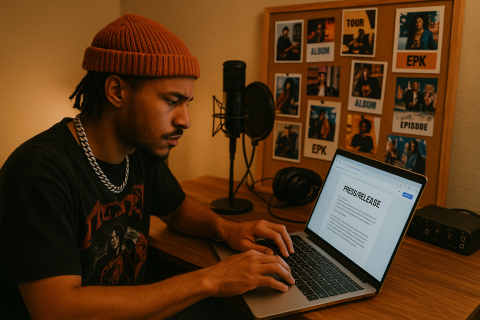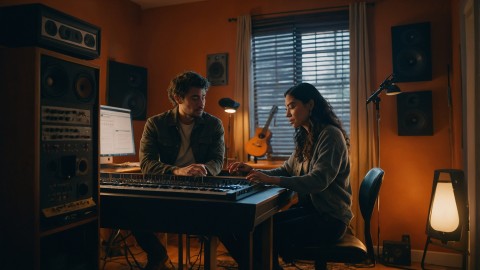Funding is a crucial aspect of building a sustainable career in the music industry. For many musicians, finding the necessary financial support can be a daunting challenge. Whether you’re an emerging artist or a seasoned professional, securing funds can help you cover production costs, marketing expenses, touring, and other essential activities that can take your career to the next level. In this article, we’ll explore various ways to fund your music career, focusing on grants, sponsorships, and crowdfunding.
Grants for Musicians
Definition and Importance of Grants
Grants are non-repayable funds provided by organizations, governments, and foundations to support specific projects or initiatives. For musicians, grants can be a vital source of funding, allowing them to create new works, tour, record albums, and more without the financial burden of loans or debt.
Types of Music Grants
- Government Grants Government agencies at the federal, state, and local levels often offer grants to support the arts. These grants can range from small amounts for specific projects to substantial funds for long-term initiatives.
- Private Foundation Grants Numerous private foundations focus on supporting the arts. These foundations may offer grants for various aspects of a music career, including production, performance, and education.
- International Grants For musicians looking to expand their reach globally, international grants can provide opportunities to collaborate and perform abroad. Organizations such as the European Union and UNESCO offer grants that support cultural exchange and artistic development.
How to Find Music Grants
Finding the right grant requires research and persistence. Musicians can start by exploring databases such as the Foundation Center, GrantWatch, and specific arts councils. Networking with other artists and industry professionals can also lead to valuable grant opportunities.
Application Process for Music Grants
Common Mistakes to Avoid Common pitfalls include failing to follow guidelines, submitting incomplete applications, and not providing a detailed budget. Musicians should ensure their proposals are polished, proofread, and align with the grant’s mission.
Researching Requirements Each grant will have specific eligibility criteria and application requirements. Musicians should thoroughly review these guidelines to ensure they qualify and understand what is needed for a successful application.
Writing a Strong Proposal A well-crafted proposal is crucial for securing a grant. This should include a clear description of the project, its goals, budget, and how it aligns with the grant’s objectives. Highlighting previous successes and providing compelling reasons for funding can make a significant difference.
Where there’s water on Earth, you find life as we know it. So if you find water somewhere else, it becomes a remarkable draw to look closer to see if life of any kind is there, even if it’s bacterial, which would be extraordinary for the field of biology.We don’t want tradition. We want to livein the present and the only history that is worth a tinker’s dam is the history we make today.


Successful Grant Stories
Many musicians have successfully funded their projects through grants. For example, the indie band “The XYZs” received a government grant that enabled them to produce their debut album and embark on a nationwide tour, significantly boosting their career.
Sponsorships for Musicians
Understanding Sponsorships
Sponsorships involve a business or organization providing financial or in-kind support in exchange for promotional benefits. For musicians, sponsorships can offer substantial financial assistance while building relationships with brands and companies.
Types of Sponsorships
- Corporate Sponsorships Large corporations often sponsor artists as part of their marketing strategies. These sponsorships can include financial support, equipment, or other resources.
- Local Business Sponsorships Small local businesses may also sponsor musicians, particularly if the artist has a strong local following. This can help both the business and the musician grow their community presence.
- Brand Endorsements Endorsements involve musicians promoting a brand’s products in exchange for financial compensation or free products. These partnerships can be highly lucrative and increase the musician’s visibility.
Finding Potential Sponsors
Identifying potential sponsors involves researching companies that align with the musician’s brand and audience. Networking events, industry conferences, and social media can be valuable tools for connecting with potential sponsors.
Approaching Sponsors
Building Relationships with Sponsors Building a successful sponsorship relationship requires ongoing communication and mutual benefit. Musicians should keep sponsors updated on their progress and find ways to provide value beyond the initial agreement.
Crafting a Sponsorship Proposal A compelling sponsorship proposal should outline what the musician can offer the sponsor, such as visibility, audience engagement, and promotional opportunities. It should also highlight past achievements and future plans.
Successful Sponsorship Case Studies
For instance, the singer-songwriter “Jane Doe” secured a sponsorship from a leading guitar manufacturer, providing her with high-quality instruments and increasing her exposure through the brand’s marketing channels.
Crowdfunding for Musicians
Introduction to Crowdfunding
Crowdfunding allows musicians to raise small amounts of money from a large number of people, typically via online platforms. This approach can fund projects such as album production, music videos, and tours while engaging directly with fans.
Popular Crowdfunding Platforms
- Kickstarter Kickstarter is a popular platform that focuses on creative projects. Musicians can set a funding goal and offer rewards to backers in exchange for their support.
- Indiegogo Indiegogo offers more flexible funding options, allowing musicians to keep funds even if they don’t reach their goal. This platform also supports a wide range of projects.
- Patreon Patreon allows musicians to receive ongoing support from fans through monthly subscriptions. This can provide a steady income stream for ongoing projects and content creation.
Creating a Successful Crowdfunding Campaign
- Setting Goals Clearly defined and realistic goals are essential for a successful campaign. Musicians should outline what the funds will be used for and how they will benefit their career.
- Creating Compelling Content Engaging videos, detailed project descriptions, and attractive rewards can entice backers to support the campaign. Musicians should convey their passion and vision through their campaign materials.
- Engaging with Supporters Regular updates and communication with backers can maintain interest and trust. Musicians should thank supporters and keep them informed about the project’s progress.
Case Studies of Successful Crowdfunding Campaigns
One notable example is “Band XYZ,” which raised over $50,000 on Kickstarter to fund their new album, thanks to a well-executed campaign that included exclusive merchandise and behind-the-scenes content for backers.
Potential Pitfalls in Crowdfunding
Common pitfalls include setting unrealistic goals, underestimating the time and effort required to run a campaign, and failing to deliver promised rewards. Musicians should plan carefully and manage backer expectations.
Additional Funding Options
Music Competitions and Awards
Many competitions and awards offer cash prizes and other benefits. These can provide financial support and boost a musician’s credibility and visibility in the industry.
Residencies and Fellowships
Residencies and fellowships offer musicians time, space, and resources to focus on their work. These opportunities often include stipends and can lead to valuable networking and collaboration.
Loans and Investments
For some musicians, loans or investment from private investors can provide necessary funds. However, these options come with financial risk and should be considered carefully.
Gig and Merchandise Revenue
Performing live and selling merchandise can generate significant income. Musicians should maximize these revenue streams by offering unique products and experiences.
Financial Management for Musicians
Budgeting and Planning
Effective budgeting is crucial for managing a music career. Musicians should plan their finances carefully, setting aside funds for essential expenses and future projects.
Managing Income Streams
Diversifying income streams can provide financial stability. Musicians should explore various revenue sources, including streaming, live performances, and merchandise
Tax Considerations for Musicians
Understanding tax obligations is essential for financial management. Musicians should keep accurate records and consider consulting a tax professional to navigate the complexities of tax laws.
Tips for a Sustainable Music Career
Building a Strong Network
Networking with industry professionals, other musicians, and fans can create opportunities for collaboration, support, and growth.
Marketing and Promotion Strategies
Effective marketing and promotion are key to a successful music career. Musicians should leverage social media, email marketing, and other tools to reach and engage their audience.
Continuous Learning and Adaptation
The music industry is constantly evolving. Musicians should stay informed about industry trends, continuously improve their skills, and adapt to new opportunities and challenges.
Conclusion
Recap of Funding Options
Securing funding is a multifaceted process that includes grants, sponsorships, crowdfunding, and additional options like competitions and residencies. Each path offers unique benefits and opportunities for musicians.
Final Thoughts and Encouragement
Building a successful music career requires persistence, creativity, and resourcefulness. By exploring various funding options and managing their finances wisely, musicians can achieve their artistic and professional goals.
Call to Action for Musicians
Musicians are encouraged to take the next step in their careers by researching funding opportunities, crafting compelling proposals, and engaging with their audience and supporters. The journey may be challenging, but the rewards are well worth the effort.








